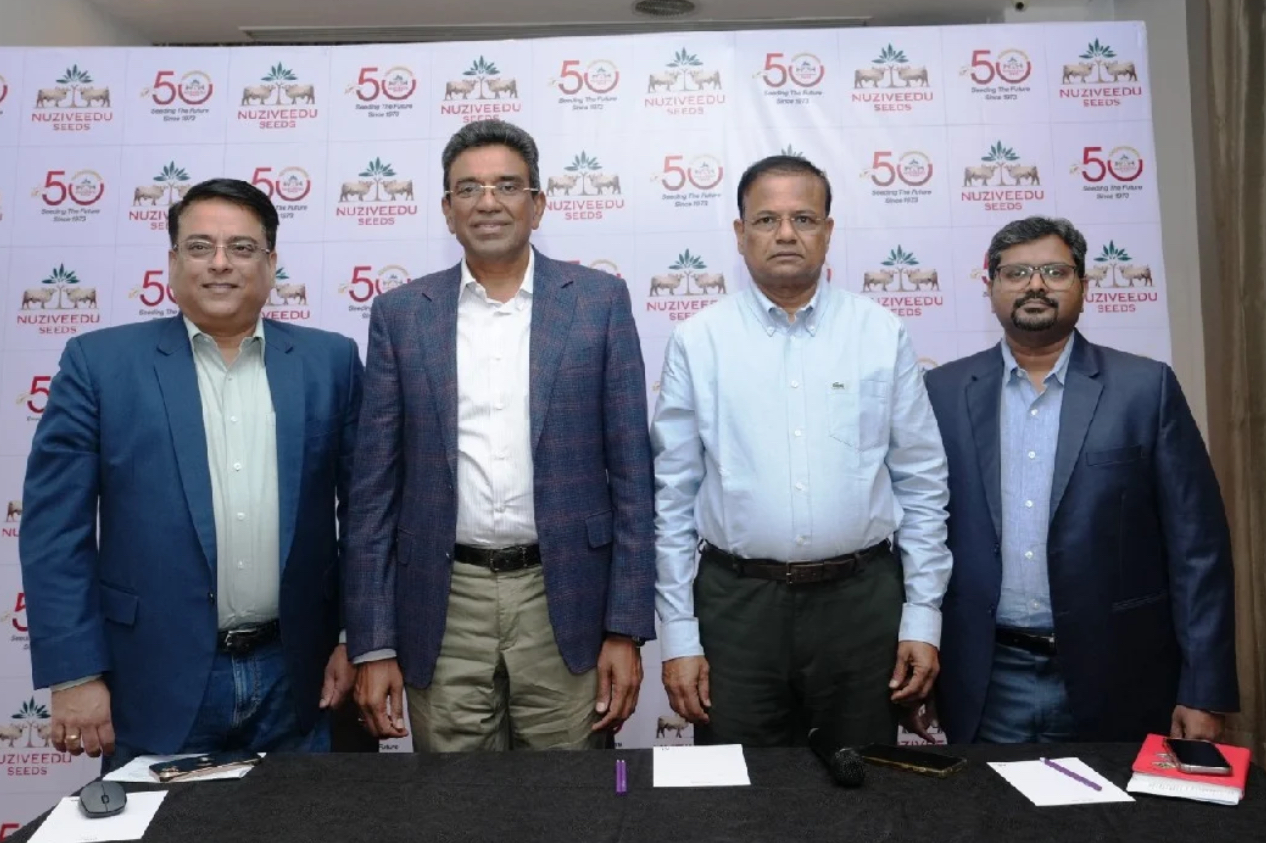Nuziveedu Seeds Limited (NSL), a major in the Indian seed industry which has completed 50 years, is investing 20 per cent of the profits in research and development towards agro climatic and macro climatic zones.
With sustained annual revenue growth of 20 per cent, it is also one of the few companies which have crossed revenues of Rs.1,000 crore.
M. Prabhakar Rao, Chairman and Managing Director of Nuziveedu Seeds Limited (NSL), told a news conference in Hyderabad on Tuesday that NSL is among the few companies that started around the same time as the inception of private seed sector in India to help the farming community.
A 150-plus strong and qualified team of scientists develop and test pipeline products across major crops that cater to almost 85% of the cropped area in the country.
He mentioned that NSL is the only private sector company with 13 processing facilities and 29 cold storages, warehouses spread across 10 states of the country. A team of almost 500 employees work with almost 1,00,000 plus seed producing farmers to produce and deliver high quality seeds to the farmers in India.
NSL employs more than 2,000 customer-facing full time employees and sales promoters to serve a customer base of almost 50 lakh farmers through a robust network of 7,500 distributors and 20,000 retailers.
NSL was founded in 1973 by Mandava Venkata Ramaiah, an agricultural technologist near Nuziveedu town of Krishna District, Andhra Pradesh. It initially worked towards taking the public bred varieties to the farmers and eventually developing its own research program to offer value-added improved varieties and hybrid seeds to the farming community.
Chief Strategic Officer Sharad Khurana said, “The Indian seed industry is expanding rapidly at a healthy 10 per cent plus year on year due to increasing seed replacement ratios and increasing awareness amongst farmers about the role of high-quality seed in improving farm productivity. Recent launches of new cotton hybrids like Asha, Aadhya, Navneeth,Siri, Revanth, Ray have positioned NSL for much faster growth with its cotton business.”










